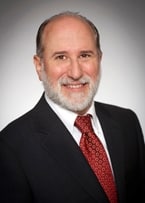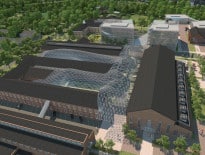Since the Great Recession, the major developments occurring in Greater Boston are impressive, changing existing neighborhoods and creating new ones. Developers need to hit it right to avoid serious losses, dealing with an array of complex matters, including concept, costs, projected revenue stream, competition, timing of opening and vetting the projects with community groups and governmental authorities.
A developer’s overall vision for a project is one key to success. Boston Properties’ projects in the Back Bay, Waltham and the North Station/TD Garden area reflect different visions for each community. At a recent Babson event, Bryan Koop, executive vice president of Boston Properties, spoke about the importance of extensive planning, analysis of data, the lessons learned from past projects, listening to members of the community and the give-and-take with the BRA. He specifically emphasized the “streetscape” – how the building meets the street and affects the general ambience of the community. He also discussed the significance of designing loft office space to match the needs of TAMI tenants (technology, advertising, media and information-based companies).
Boston Properties knows, through data analysis, that TAMI clients are moving to the North Station/TD Garden area and have different space requirements than traditional office tenants. As a result, Boston Properties has redesigned the floorplates, moving building systems back from the traditional location in the center of the building (at additional costs) and having larger windows to permit ambient light to flow to more of the premises. Otherwise, to design space that does not meet a target-tenant audience could be disastrous. Koop also highlighted the importance of branding for the vision of the project, calling the project “Hub at Causeway” and the area “Uptown.”
Key Considerations: Proximity To Transit And Food
The lifeblood of many projects is proximity to multiple methods of transportation, including the MBTA, rail lines and major highways. Developers and others are aware that our transportation infrastructure is connected directly to long-term economic growth of our area, yet each aspect of our transportation system is in need of improvement. The proposed new Lechmere station in Cambridge is of such importance that the developers of the North Point project (comprised of over 40 acres of office, retail and apartment buildings in East Cambridge) are negotiating with the city of Cambridge to determine the developers’ “contribution” of the $25 million pledged by city officials to try to save the Green Line extension. GE’s move to the Seaport was partly based upon promises by Mayor Martin Walsh and Gov. Charlie Baker to commit millions of dollars to infrastructure improvements to the Seaport and the Seaport’s easy access to the airport, which is the result of the Big Dig, the last major highway improvement project in Boston.
Developers evaluate the best way to finance a project, whether with their own dollars (such as occurs with pension funds and REITs), by adding equity partners or with traditional lender financing. Many developers have moved to equity partners, although there are difficult negotiations over which aspects of the project the equity partners retain approval rights. This preference to equity funding is partly based upon the continued flow of foreign capital to Boston and a reluctance of developers to be exposed under personal guaranties required by traditional lenders, even so-called “bad boy guaranties” as lenders have found loopholes to pursue guarantors when projects fail.
For example, Hines’ long-delayed multi-use project at South Station may get underway due to a Chinese investor coming on board. Many projects have been delayed or aborted due to either failure to get the right equity partners under the right arrangement or the right financing with a lender who will stay the course during difficult times.
Another key driver for major projects in and around Boston is ready access to a supermarket. From Roche Brothers in Downtown Crossing to Whole Foods Market at the Ink Block to the Star Market planned for the Hub at Causeway, having the right supermarket for a location is key. At a recent Bisnow event, Ron Druker, president of the Druker Co., noted that the Whole Foods Market in the Ink Block will accelerate the development of the entire Northeast corner of the South End.
Developers’ ability to deal with these issues and others that arise as their projects proceed will determine not only whether the projects succeed or fail but will redefine Boston’s neighborhoods for decades to come.
Eric Allon is a partner at Bernkopf Goodman LLP and a commercial real estate attorney.









